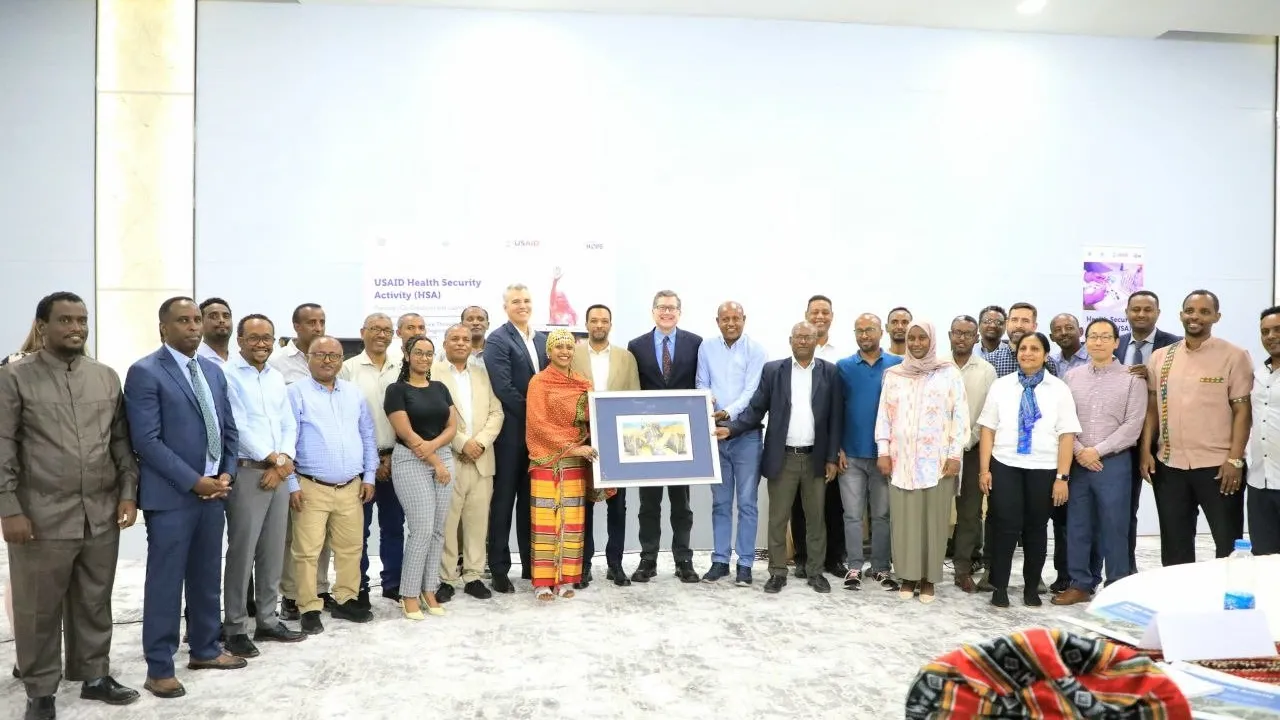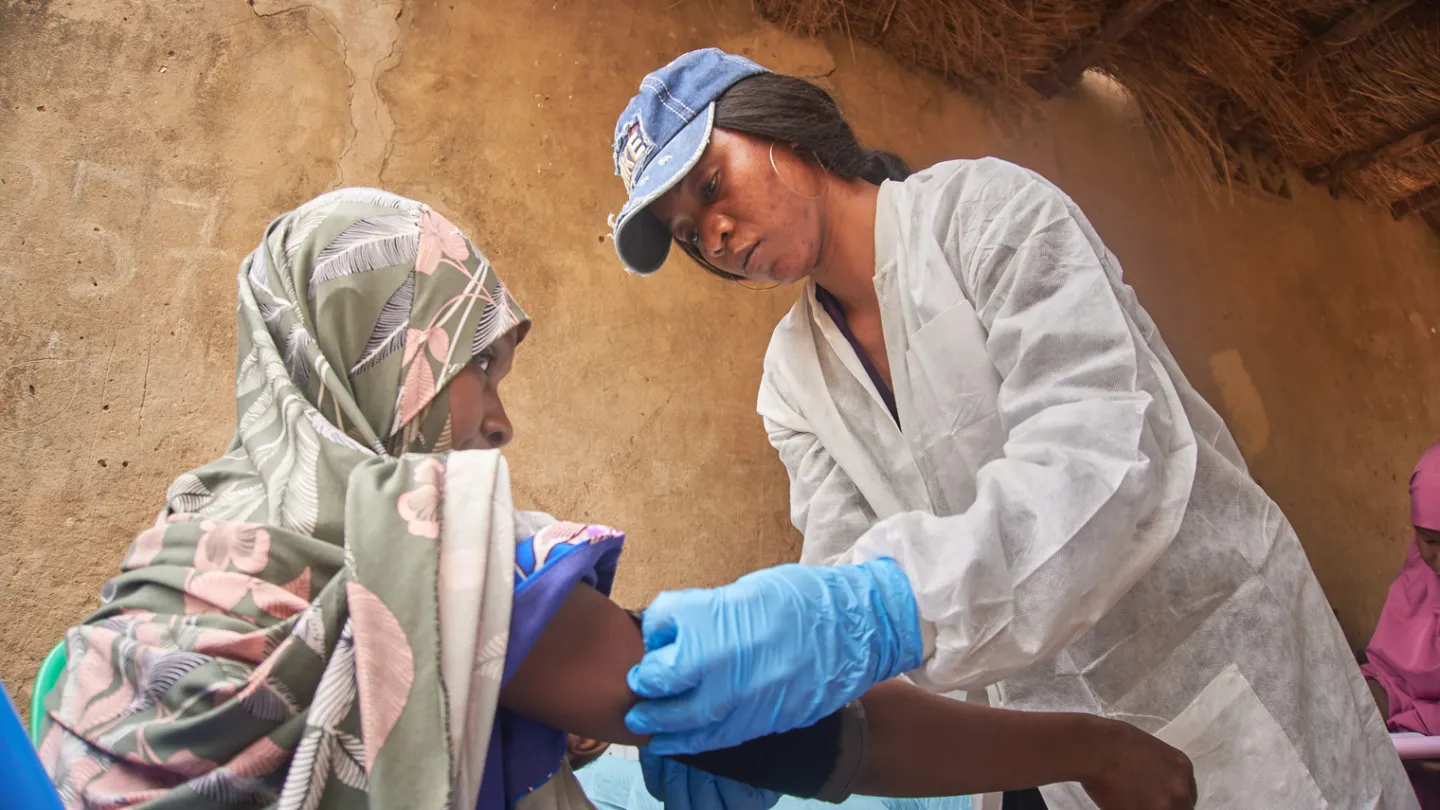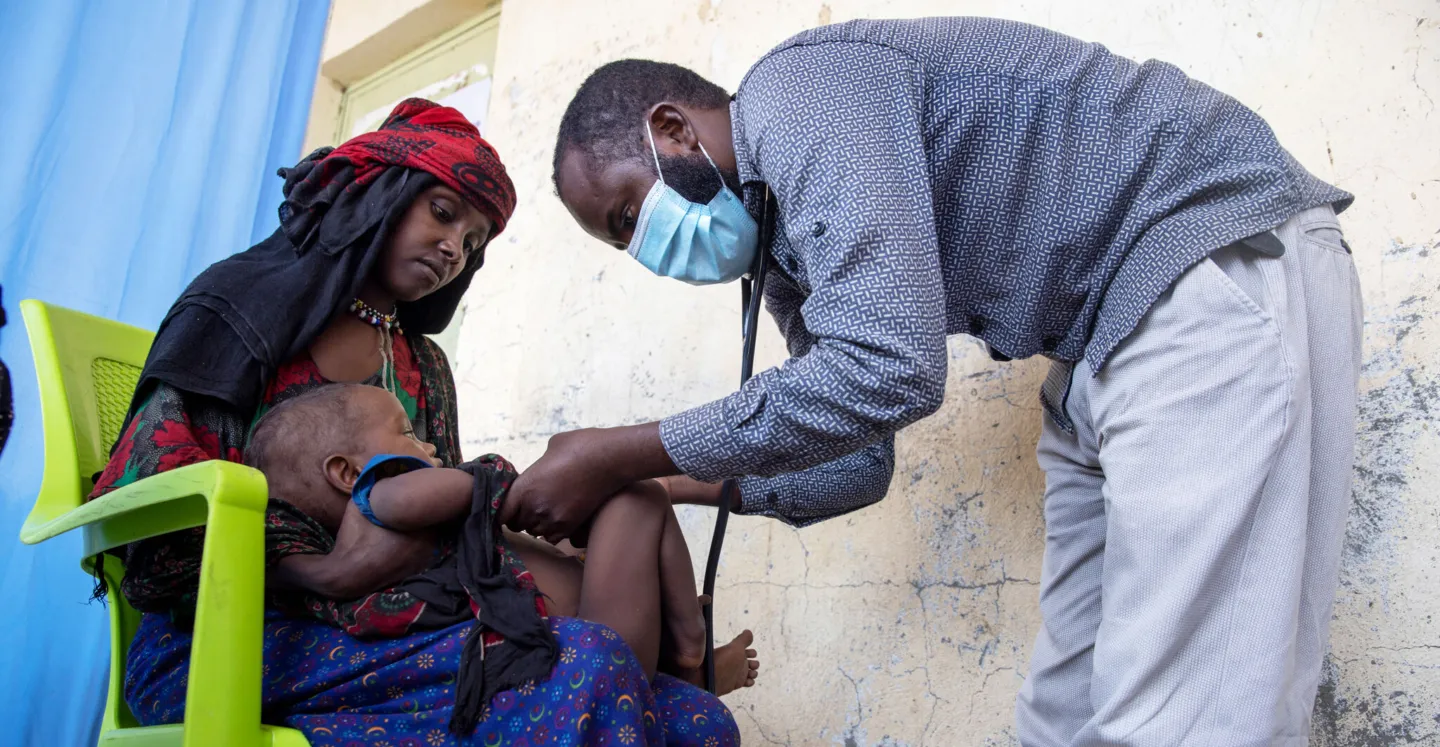

Ethiopia
Building local capacity to improve health and nutrition outcomes
The Context
Over the past two decades, Ethiopia has made significant health improvements. Nevertheless, challenges such as conflict, climate crises, and an increase of refugees in recent years have placed considerable strain on Ethiopia’s health system. People, particularly in conflict-affected regions in northern Ethiopia, face restricted access to clean water, nutritional support, vaccinations, and HIV/AIDS testing and medication.
Our Impact
Strengthening the Local Health System
Project HOPE collaborates with health facilities, local partners, and other NGOs to enhance Ethiopia’s health systems, aiming to elevate health and nutrition outcomes. This includes working with local communities to improve health literacy and engagement.
Supporting Local Partners to Expand HIV/AIDS Care
Under PEPFAR, Project HOPE works closely with communities to expand access to HIV prevention, care, and treatment services. We work with local partners and health facilities, focusing on strengthening community health and support systems for service delivery, improving organizational and technical capacity structures, and increasing support for data collection to use for learning and program improvement. Project HOPE works to build the capacity of local implementing partners to lead on HIV activities and has successfully prepared five Ethiopian NGOs to be prime recipients of USAID/PEPFAR funding.
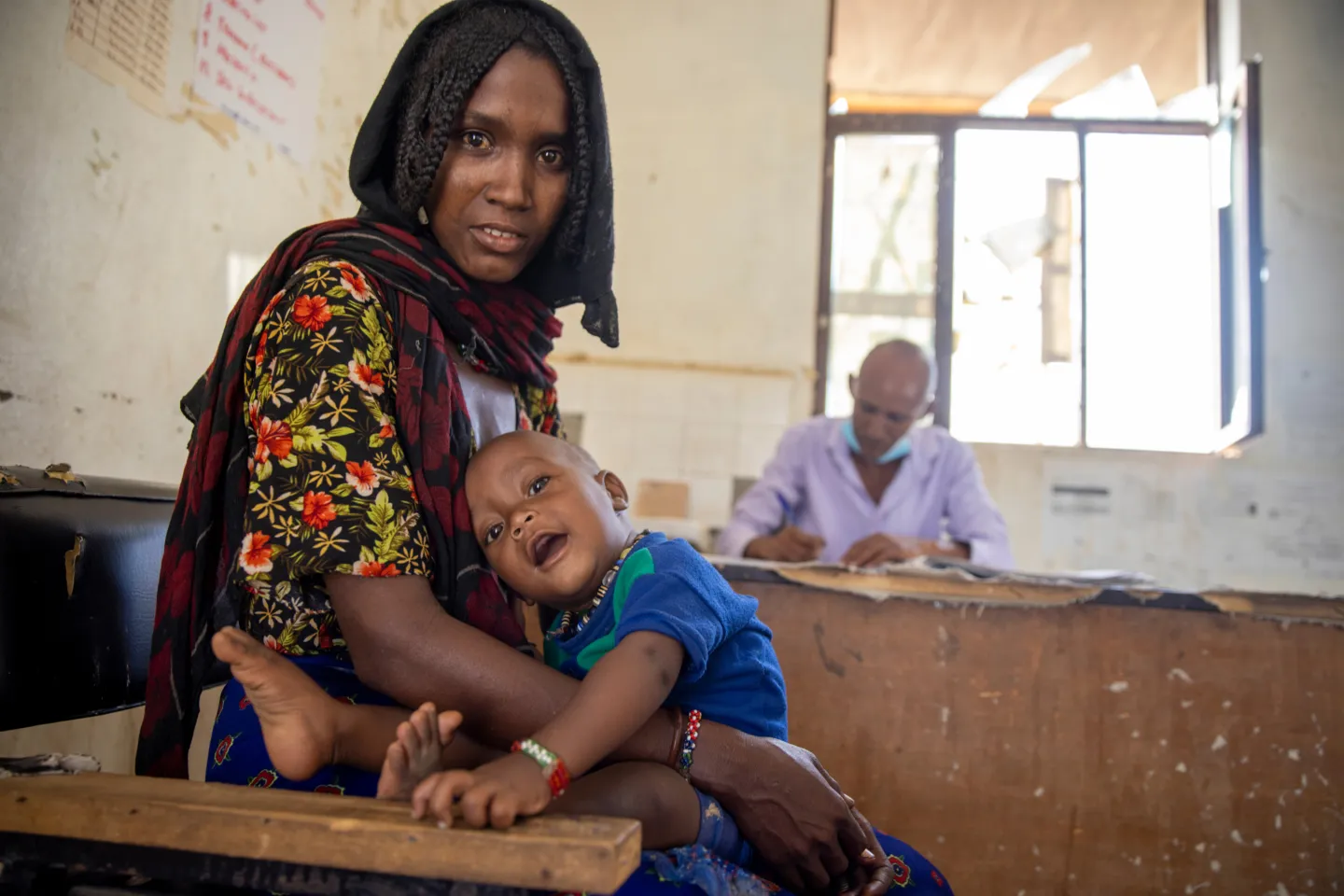
Supporting Maternal, Newborn, and Child Health
Project HOPE is a leading partner in neonatal and child health support in Ethiopia, establishing centers for Comprehensive Emergency Obstetric and Newborn Care, which provide a mentorship program for hospitals. We have equipped hospitals and trained health workers to establish mini blood banks to reduce barriers to emergency cesarean deliveries. In addition, Project HOPE joined other organizations in supporting the establishment of 123 newborn resuscitation corners and 500 oral rehydration therapy centers.
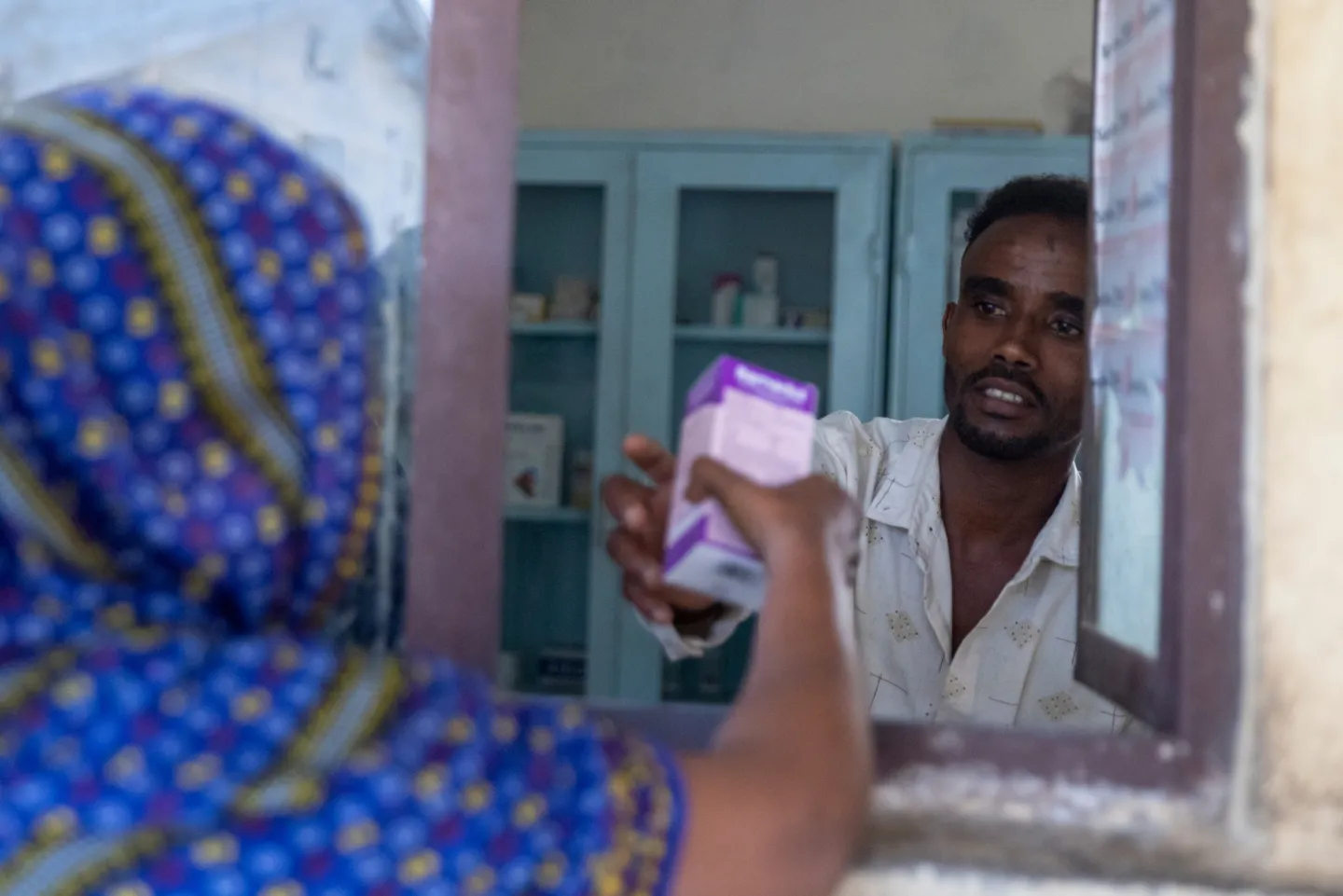
Expanding Vaccine Outreach
Project HOPE was one of the first organizations to operate in the Tigray region after violence subsided in 2023, carrying out a campaign to deliver the first set of COVID-19 vaccines to the area in partnership with the Tigray Regional Health Bureau, World Health Organization, and USAID. We also conducted in-depth research on zero-dose vaccinations among children in underserved areas, leading to significant investments from partners in vaccination campaigns countrywide.
Emergency Humanitarian Response
Due to the civil conflict, millions of people have been displaced and need urgent humanitarian assistance. Project HOPE is responding in the Afar, Amhara, Oromia, and Tigray regions to provide health and nutritional support to people affected by the conflict, including deploying Mobile Health and Nutrition Teams (MHNTs) to deliver primary healthcare, emergency nutritional assistance, and maternal care.
Our History in Ethiopia
Project HOPE established an office in Addis Ababa, Ethiopia in 2017 to support HIV/AIDS prevention, care, and treatment, and to increase access to maternal and child health services. Today, Project HOPE continues to work with a range of partners to improve HIV care and treatment access; maternal, newborn, and child health; global health security; health information systems; local capacity of NGOs; immunization rates; nutrition; and access to lifesaving water, sanitation, and hygiene services (WASH).


